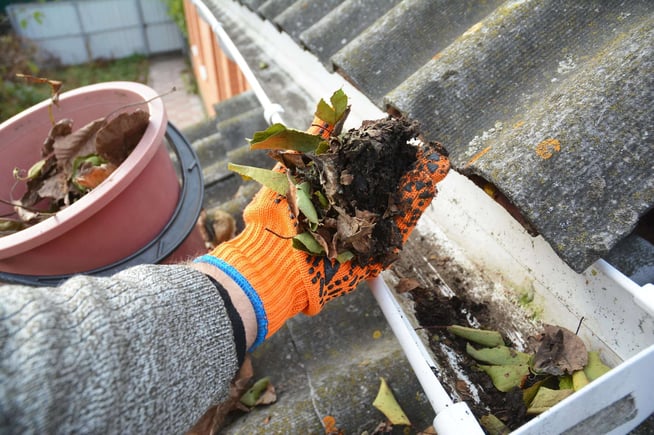The colder weather likely has us all stocking up on soup, taking out our fuzzy blankets, and putting up the holiday decorations. But with the official start of winter approaching, it's important to get your home and HVAC system ready, too. In this article, we'll cover some of the best ways to prepare your home and heater so that you can stay warm and save money throughout the winter season.
1. Schedule a Heater Tune-Up
Whether you have an oil, gas, or electric heating system, it's important to maintain it each year. By scheduling a heater tune-up, you can be confident that everything is running properly and safely, leaving you with a cozy environment and lower energy bills.

2. Change Your HVAC Filters
During a furnace or heat pump tune-up, your technician will change out/clean the air filters. Having clean filters will ensure that your heater is running efficiently and your indoor air quality is high, so it's important that you do this yourself every few months, in between tune-ups. If you decide to opt out of a heater tune-up, it's even more important that you change out the filters before you start using the heater.
3. Reprogram Your Thermostat
During hours that you'll be home, aim for comfortable yet energy-efficient temperature setpoints. When your home is unoccupied, lower thermostat temperatures to achieve energy savings and eliminate unnecessary heating.
For fan settings, opt for AUTO. This setting allows the blower to operate only when the heating system cycles, preventing excessive energy usage and the discomfort of cold air rushing through your vents when the fan runs without heat.
4. Seal Windows and Doors
Drafts near windows or doors can cause your heating system to overwork and can increase your energy bill as a result. Caulking windows and doors properly can protect your house from unwanted moisture and air leaks. If you notice drafts in your home or that your energy bills have spiked, this is a sign you might need to replace the caulk around your windows and doors.
5. Reverse Ceiling Fans
If your ceiling fan is equipped with a reverse switch, take advantage of it by running the fan's blades in a clockwise direction once you start using your heater. According to Energy Star, this will create an updraft that pushes the warm air from the ceiling down into the room (remember, hot air rises).
This tip is particularly beneficial for rooms with high ceilings, and it might even allow you to lower your thermostat by a degree or two, resulting in greater energy savings.
6. Have the Chimney Inspected
When you burn wood in your fireplace or woodstove, it leaves behind ash and carbon residue, known as creosote, that needs to be cleaned out. Creosote is a flammable substance that can ignite a fire that spreads throughout the chimney and to your home. Before you turn the heat on, make sure your fireplace, chimney, and vents are clean and in good condition. That will prevent chimney fires and carbon monoxide from creeping into your home. The National Fire Protection Association recommends having heating equipment and chimneys cleaned and inspected annually by a qualified professional.
7. Get a Roof Inspection
When it comes to a roof inspection, you can opt to do it yourself or hire a professional. If you choose to inspect your roof, look for damaged, loose, or missing shingles that may leak during winter storms or from melting snow. If you notice any damage, be sure to get it fixed before the cold weather arrives.
8. Clean Your Gutters

Speaking of the roof, it's also a good idea to clean your gutters. Gutters need to be cleaned at least twice a year — in the spring and in the fall. Neglecting gutter maintenance can lead to costly repairs down the line. Moreover, if your gutters are full of debris, water can back up against the house and damage roofing, siding, and wood trim — plus cause leaks and ice dams. Gutters filled with debris can also make homes for rodents and other pests.
Finally, gutters positioned above HVAC units can cause water to drip down onto the unit and cause it to ice over. Cleaning your gutters and fixing any leaks will help prevent heat pumps from icing over in the winter and protect air conditioners against moisture damage.
By following this checklist, you can enjoy a comfortable home, an efficient HVAC system, and more money in your wallet this winter.
If you live in the Delaware Valley/Greater Philadelphia area and would like to find comfort within your home, visit our website or give us a call at 215 - 245 - 3200 to learn more.





